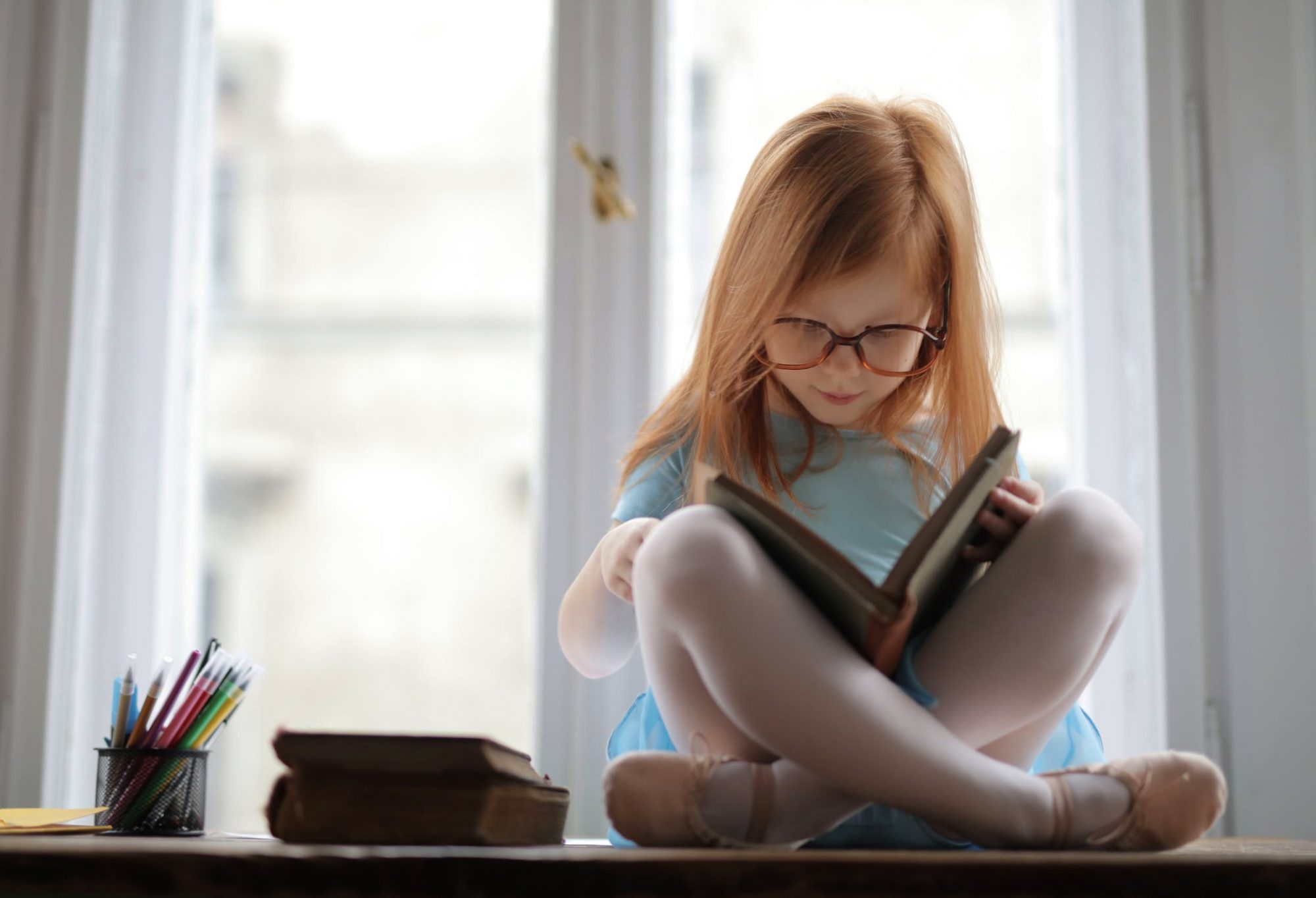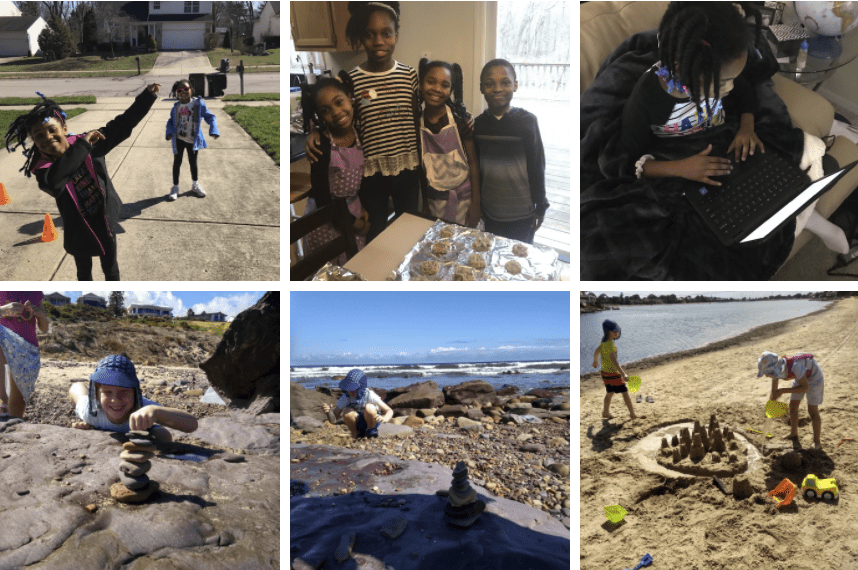There is a lot of talk about the impact that COVID-19 is having and will continue to have on our children’s education. Parents are worrying that their children will fall behind, waste a year of schooling, or not learn anything while their schools are closed.
Schooling is certainly going to look different over the coming weeks and months as teachers find new ways to help their students learn from home. Parents will need to help their children learn at home as well as juggle the many pressures the COVID-19 situation is causing. Some have lost their jobs, others are trying to work from home while caring for their children at the same time, while all are working hard to keep their loved ones safe and healthy.
I think we need to give parents — and our teachers — a break!
The truth is that our children will not stop learning. They are learning all the time and we couldn’t stop them if we tried.
At the moment, children all over the world are learning how it feels when they can’t do their usual daily activities. They are learning how the adults around them respond to stressful situations, and unfortunately, some of them will be learning to deal with grief.
Our children can have so many positive learning experiences at home through everyday activities. So, let’s reassure parents that children will continue to learn and that they don’t need to be teachers themselves or tie themselves in knots trying to be superhuman.
Here are ten ways to tell that children are learning effectively at home:
They are getting bored and doing something about it
So many of our children’s usual activities, including going to school, have stopped. It’s only natural that they are going to feel lost and not know what to do with their time at home. Resist the urge to always jump in with ready-made activities. With boredom often comes the opportunity to be imaginative, creative, resourceful and inventive, and find new ways to be entertained and engaged.
They are finding new ways to do things
Just because children can’t leave the house to join in with their favourite activities, doesn’t mean that they need to miss out altogether. You won’t find it in any workbook, but the skills and dispositions involved in finding new ways to do old things will set our children up to be flexible, adaptable problems solvers in the future. My ten-year-old niece, for example, was missing hanging out with a best friend. The two girls worked out how to connect online to play games, do schoolwork and continue a colouring-in project they had started doing together at school.
They are noisy
Children who are practising musical instruments, playing board games like Blackout Bingo with their siblings, asking questions, discussing the latest news, chatting to friends safely online, and singing along to their favourite songs make a lot of noise. They are also learning a wide range of skills and positive behaviours by engaging in these activities.
They are puzzled
Jigsaw puzzles, puzzle books, and puzzling online activities can help keep children engaged and occupied. These types of activities also help develop spatial thinking, fine motor skills, problem-solving, and reasoning skills. Makers Empire is a great place for children to be puzzled and challenged. Why not spend some time in our Game Zone designing and creating challenging maze puzzles?
They are messy
Children who are making inventions out of junk materials, cooking lunch, conducting science experiments, building with Lego, and building amazing cubby houses in the spare room make a lot of mess. They are also learning important design and STEM concepts. They are experimenting with what works and what doesn’t and trying again until they get it right.
They are reading
As long as children are doing it every day they are not going to get behind with their reading. It doesn’t have to be their class novel or special reading books from school. If they are reading favourite books, recipes, instructions for games, subtitles on movies then they are engaged in meaningful relevant reading activities. Being read to is also extremely valuable for literacy development. A storybook read by an older sibling, a chapter of a novel read by a parent, storytime with a grandparent online, or even showing them what is an audiobook – which are all feel-good literary experiences.
They are helping
Taking responsibility for age-appropriate household chores, preparing meals, gardening and DIY projects help children develop important life skills and help them feel that they are contributing to their families in positive ways. It is also beneficial for children to be included in discussions and decisions about how their family are keeping safe and managing the changes in their lifestyles.
They are moving
Children’s bodies need regular exercise to develop healthy bones, muscles and brains. Wherever possible children need to get outside (or inside if they are in lockdown) and be active. Kicking a ball, skipping, dancing or climbing over a makeshift obstacle course should all be part of a day of learning at home. Getting out for family walks, bike rides and swimming at the beach, as long as they are in line with local social distancing rules, are also great for exercise and stress relief.
Their hands are busy
Engaging in hands-on activities helps children develop many skills and capabilities. The focus should be on children having a variety of experiences each day. I suggest aiming for children to use five different handheld tools, devices or utensils each day. For example, writing a letter with a pencil, stirring cake mix with a wooden spoon, designing in Makers Empire 3D on an iPad, laptop or device, building a tower with blocks, and digging a hole with a spade.
They have contact with their schools
We know that teachers and schools are working incredibly hard to support families and help children learn at home. They are creating online learning environments, making packs of learning materials to distribute to families, putting together lists of activities for children to do at home, and keeping in touch with their students in many ways. It is important for parents to make the most of the support being offered by their children’s teachers and to follow the advice and guidelines of these education professionals where possible.
Finally, it is also important for parents to give themselves permission to do what works for their children and their individual circumstances. If children need a break, if parents are having a stressful day and children have extra screen time, or if the whole family needs to chill out in front of the TV, then that is totally fine. Children whose emotional needs are met and whose family’s wellbeing is prioritised will be children who adjust and adapt to the changes caused by COVID-19 and are ready to return to regular schooling and activities when the crisis is over.
AUTHOR BIOGRAPHY

More Learning at Home Resources
The Makers Empire team has been working hard to create new resources to support teachers and schools faced with current or upcoming school closures. Check out related posts:
- FREE New & Improved Learning at Home Course for teachers and parents
- 10 Social Distancing & Self Isolation 3D Design Challenges
- 10 Coronavirus 3D Design Challenges For Students
- Set Your Own Design Missions in Makers Empire
Makers Empire helps K-8 teachers teach Design Thinking, STEM and 21st-century learning skills using 3D printing. Our pioneering 3D solutions for schools include 3D modelling software, over 150 lesson plans aligned with international standards and professional development. With Makers Empire, engaged students learn how to solve real-world problems and make their world better.













